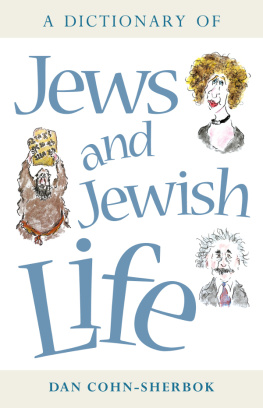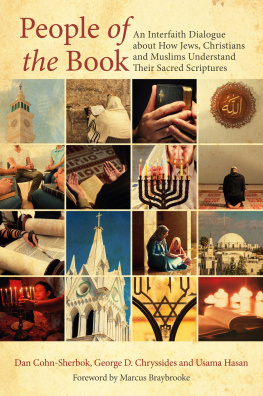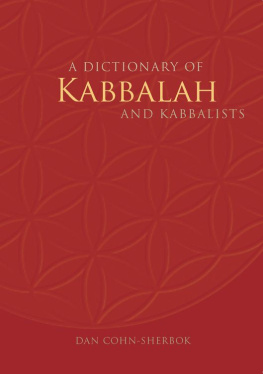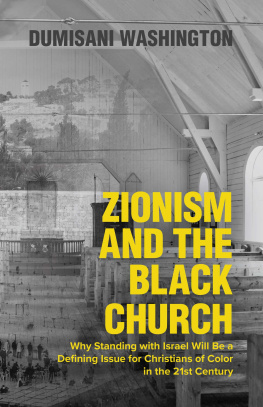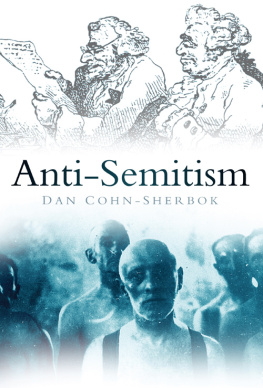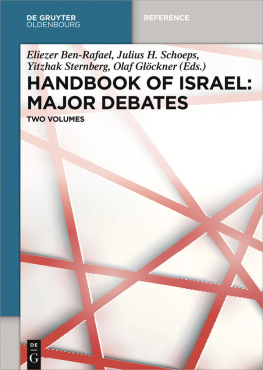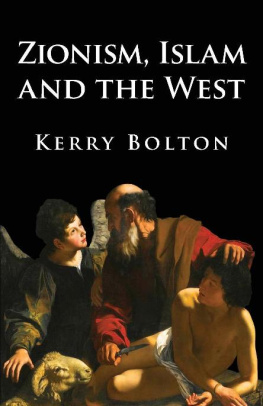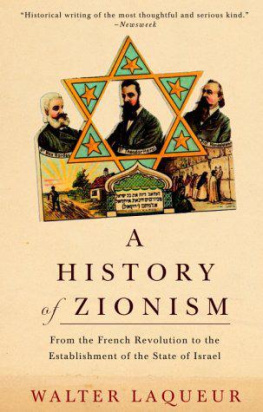Dan Cohn-Sherbok - Introduction to Zionism and Israel: From Ideology to History
Here you can read online Dan Cohn-Sherbok - Introduction to Zionism and Israel: From Ideology to History full text of the book (entire story) in english for free. Download pdf and epub, get meaning, cover and reviews about this ebook. year: 2011, publisher: Bloomsbury Academic, genre: Religion. Description of the work, (preface) as well as reviews are available. Best literature library LitArk.com created for fans of good reading and offers a wide selection of genres:
Romance novel
Science fiction
Adventure
Detective
Science
History
Home and family
Prose
Art
Politics
Computer
Non-fiction
Religion
Business
Children
Humor
Choose a favorite category and find really read worthwhile books. Enjoy immersion in the world of imagination, feel the emotions of the characters or learn something new for yourself, make an fascinating discovery.

- Book:Introduction to Zionism and Israel: From Ideology to History
- Author:
- Publisher:Bloomsbury Academic
- Genre:
- Year:2011
- Rating:5 / 5
- Favourites:Add to favourites
- Your mark:
- 100
- 1
- 2
- 3
- 4
- 5
Introduction to Zionism and Israel: From Ideology to History: summary, description and annotation
We offer to read an annotation, description, summary or preface (depends on what the author of the book "Introduction to Zionism and Israel: From Ideology to History" wrote himself). If you haven't found the necessary information about the book — write in the comments, we will try to find it.
Introduction to Zionism and Israel: From Ideology to History — read online for free the complete book (whole text) full work
Below is the text of the book, divided by pages. System saving the place of the last page read, allows you to conveniently read the book "Introduction to Zionism and Israel: From Ideology to History" online for free, without having to search again every time where you left off. Put a bookmark, and you can go to the page where you finished reading at any time.
Font size:
Interval:
Bookmark:
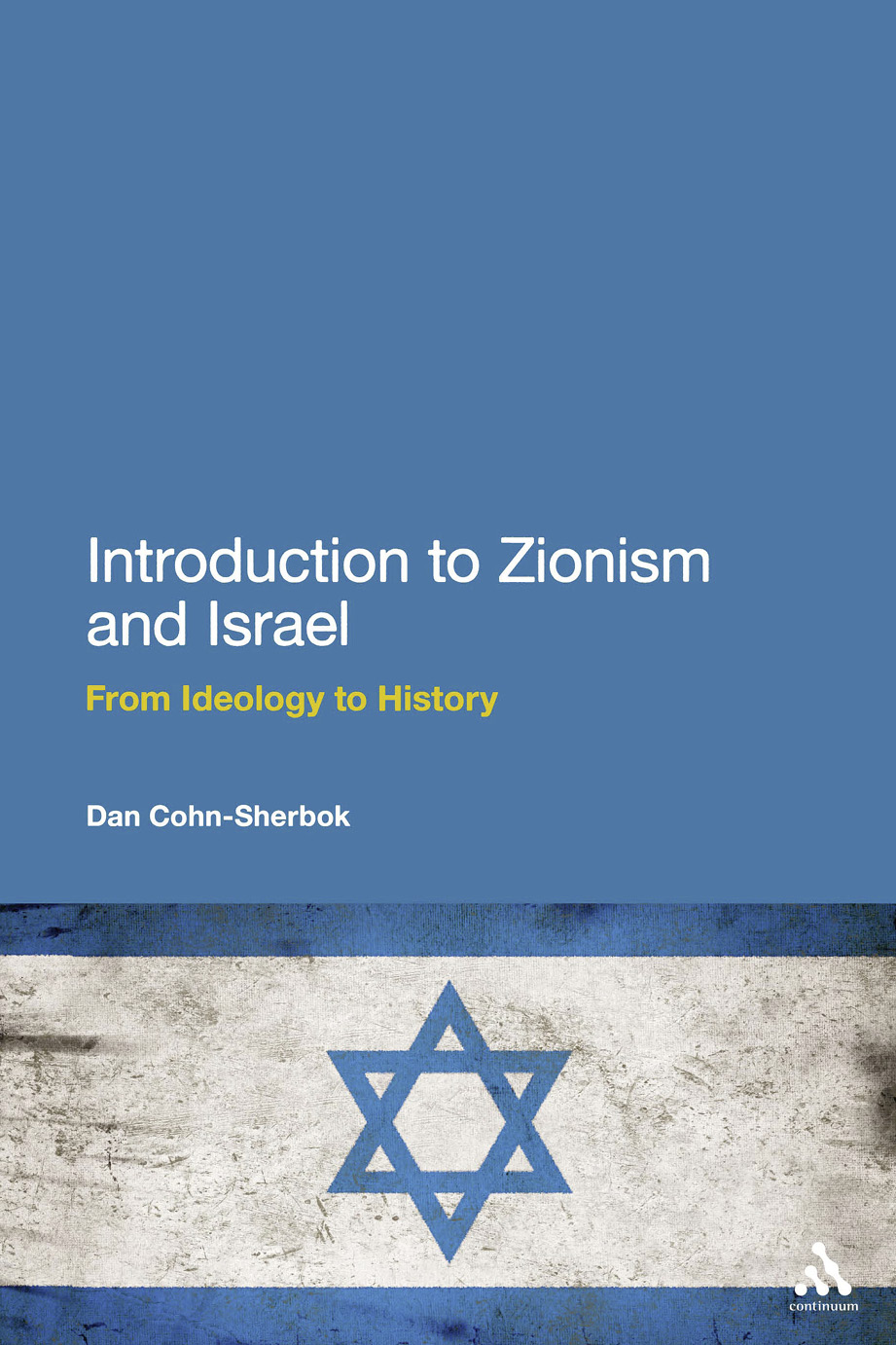
Also available from Continuum
Israel, Palestine and Terror , Stephan Law
Judaism Today , Dan Cohn-Sherbok
Introduction to Zionism and Israel
From Ideology to History
Dan Cohn-Sherbok

Continuum International Publishing Group
The Tower Building 11 York Road London SE1 7NX | 80 Maiden Lane Suite 704 New York NY 10038 |
www.continuumbooks.com
Dan Cohn-Sherbok 2012
All rights reserved. No part of this publication may be reproduced or transmitted in any form or by any means, electronic or mechanical, including photocopying, recording, or any information storage or retrieval system, without prior permission in writing from the publishers.
Author has asserted his/her right under the Copyright, Designs and Patents Act, 1988, to be identified as Author of this work.
British Library Cataloguing-in-Publication Data
A catalogue record for this book is available from the British Library.
ISBN:978-1-4411-6674-6
Library of Congress Cataloging-in-Publication Data
A catalog record for this book is available from the Library of Congress.
Typeset by Fakenham Prepress Solutions, Fakenham, Norfolk NR21 8NN
Contents
Acknowledgments
I would like to acknowledge my indebtedness to a number of books which provided information and source material:
Martin Gilbert, Israel: A History , London: Black Swan, 1999.
Arthur Hertzberg (ed.), The Zionist Idea: A Historical Analysis and Reader , New York: Jewish Publication Society, 1997.
Conor Cruise OBrien, The Siege: The Saga of Israel and Zionism , London: Paladin, 1988.
Howard M. Sachar, A History of Israel from the Rise of Zionism to Our Time , New York: Alfred A. Knopf, 2007.
David Vital, The Origins of Zionism , Oxford: Oxford University Press, 1980.
David Vital, Zionism: The Formative Years , Oxford: Clarendon Press, 1982.
David Vital, Zionism , The Crucial Phase , Oxford: Clarendon Press, 1987.
For Lavinia
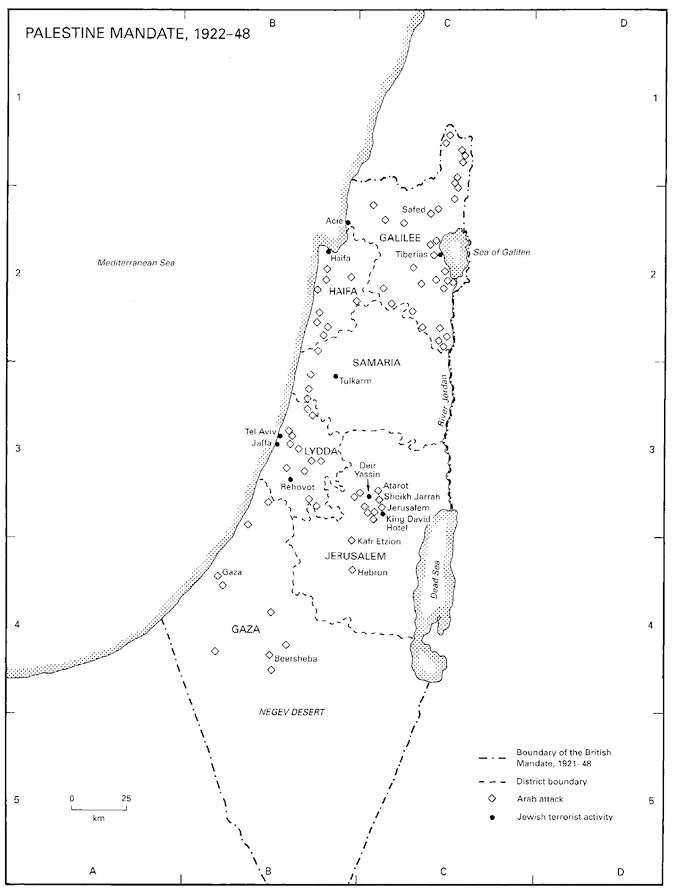
Map of Palestine Mandate 19221948
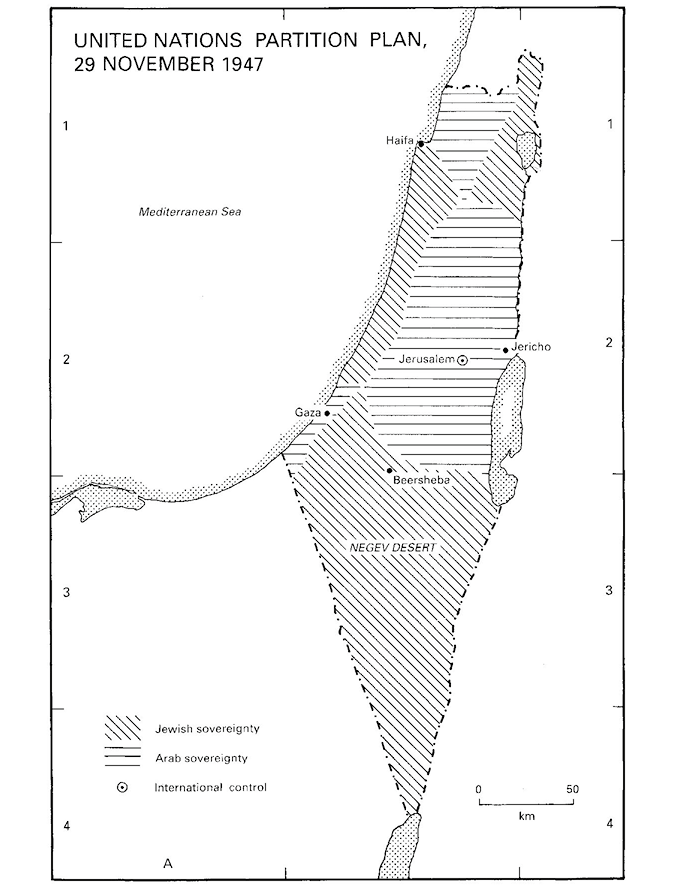
Map of United Nations Partition Plan 29 November 1947
![]()
Map of Arab-Israeli Conflict 19481985
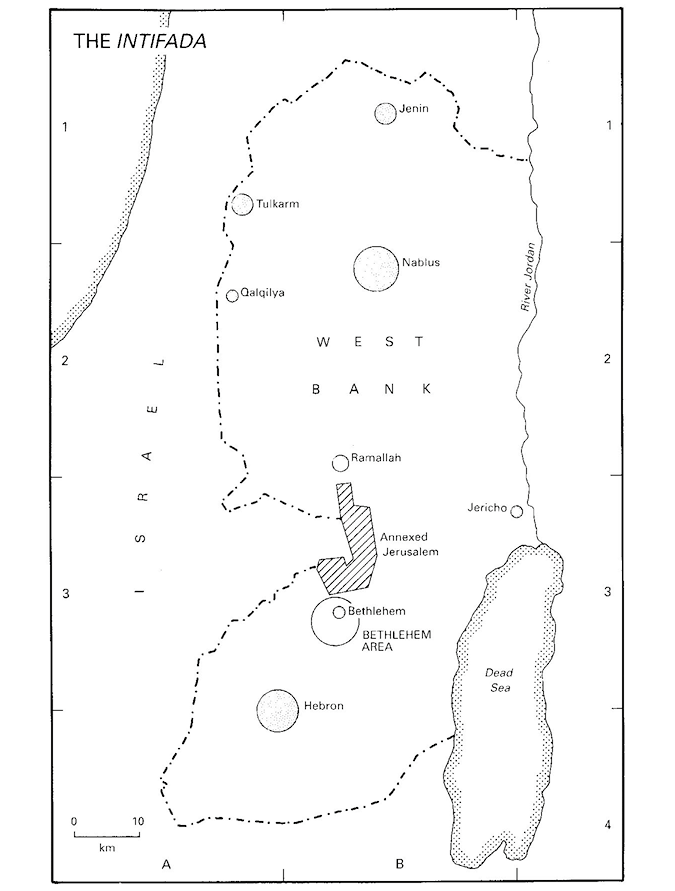
Map of The Intifada
The Emergence of Secular Zionism
Chapter Outline
The Forerunners
Moses Hess: National Consciousness and Universalism
Leo Pinsker: Autoemancipation
Theodor Herzl: The Jewish State
Ber Borochov: Zionism and Marxism
Vladimir Jabotinsky: Jewish Self-Defense
With the conversion of Shabbatai Zevi in the seventeenth century, Jewish preoccupation with messianic calculation diminished. Many Jews became disillusioned with centuries of messianic anticipation and disappointment: the longing for the Messiah who would lead the Jewish people to the Holy Land and bring about the end of history seemed a distant hope. Instead eighteenth- and early nineteenth-century Jewry hailed the breaking down of the ghetto walls and the elimination of social barriers between Jews and Christians. In this milieu the belief in the Kingdom of God inaugurated by the Messiah-king receded in importance.
In this milieu there emerged a number of leading secularists who were preoccupied with the problem of antisemitism rather than messianic deliverance. Moses Hess, for example, argued that anti-Jewish sentiment is unavoidable. No reform of Judaism can eliminate Jew- hatred from Western society. According to Hess, the only solution to the Jewish problem is the creation of a Jewish state which will enable world Jewry to undergo a renaissance and serve as a spiritual centre for all of humanity. Similarly, Leo Pinsker contended that Judeophobia is an extricable part of Western society the only remedy for antisemitism is for Jewry to reconstitute themselves as a separate people in their own land. Echoing such sentiments Theodor Herzl espoused the creation of a Jewish homeland and undertook political steps to bring about its realization. Among Jewish activists who joined this quest to deliver the Jewish nation from their wanderings was Ber Borochov who attempted to integrate Jewish nationalism with Marxist ideology. For Borochov, the national struggle will liberate Jewry from its dependence on non-Jewish economic structures and enable Jews to be integrated with the universal revolutionary movement. Another major thinker of this period was Vladimir Jabotinsky who stressed the importance of armed struggle in the quest for national autonomy. Although these various figures departed radically from traditional patterns of Jewish thought about Jewish redemption, like their religious and spiritual counterparts they foresaw the need for a Jewish state in contemporary society. Their desire for a return to Israel was a modern expression of a deep longing within the Jewish soul.
The Forerunners
Zionism as a political movement was preceded by various developments in the post-Enlightenment period. The term itself only appeared in the 1890s, but the importance of Zion in the life and thought of the Jewish nation was present throughout its history. The blessing Next year in Jerusalem was part of the Passover ritual, and when praying in the synagogue Jews faced towards the east. In the history of the nation, the appearances of numerous messianic figures, including Shabbatai Zevi in the seventeenth century, was connected with the aspiration to return from exile. Numerous small Jewish settlements existed in the Holy Land throughout the centuries, and individual migration was a constant feature of Jewish life.
During the eighteenth and nineteenth centuries various pamphlets were circulated, encouraging the restoration of the Jews to Eretz Israel. Indeed, Napoleon during his Egyptian campaign published a proclamation calling on the Jews of Asia and Africa to join him in restoring Jerusalem. Beginning with the 1840s Jewish newspapers discussed the return to Palestine as a laudable aspiration. Jewish communities in Palestine sent emissaries on yearly tours to encourage Jews in Europe to support these settlements. During this period European powers and the United States established consulates in Jerusalem, and various newspapers published articles advocating the creation of an independent state in Syria and Palestine where Jews would be able to settle. Novels of the period were interested in Palestine as well. Disraelis Coningsby and Tancred tell the story of a duke who goes to Palestine to study the Asiatic problem. In George Eliots Daniel Deronda , Deronda decides to devote himself to creating a national Jewish centre in Palestine. Mordecai, Derondas mentor, stresses that Judaism is a living faith, and that the Jews have a mission: to return to the land of their ancestors.
In Europe associations for the promotion of Jewish emigration to Palestine emerged between 1881-82 in a number of Russian cities. The first was established in Suvalki near the Polish-Lithuanian border, and another in Kremenchug while Rabbi Shmuel Mohilever of Radom spearheaded the establishing of such associations in Poland. Some of these bodies consisted mainly of Orthodox Jews; others of radical students. A number of these associations prepared themselves for immigration; others were primarily philanthropic. The most active group was founded by high-school and university students in Kharkov in 1881 calling itself Bilu ( Bet Yaakov lechu ve nelcha O house of Jacob, come ye, and let us go (Isaiah 2:5). Some of its members left for Odessa on their way to Constantinople and Palestine. The first aliyah (wave of immigration) dates from their arrival. About sixteen arrived in Palestine and went to work at Miqve Israel, an agricultural school. Later they established their own agricultural settlement south of Jaffa (Gedera). Despite the enthusiasm of these pioneers, Orthodox Jews living in Jerusalem were critical of these newcomers.
Next pageFont size:
Interval:
Bookmark:
Similar books «Introduction to Zionism and Israel: From Ideology to History»
Look at similar books to Introduction to Zionism and Israel: From Ideology to History. We have selected literature similar in name and meaning in the hope of providing readers with more options to find new, interesting, not yet read works.
Discussion, reviews of the book Introduction to Zionism and Israel: From Ideology to History and just readers' own opinions. Leave your comments, write what you think about the work, its meaning or the main characters. Specify what exactly you liked and what you didn't like, and why you think so.

